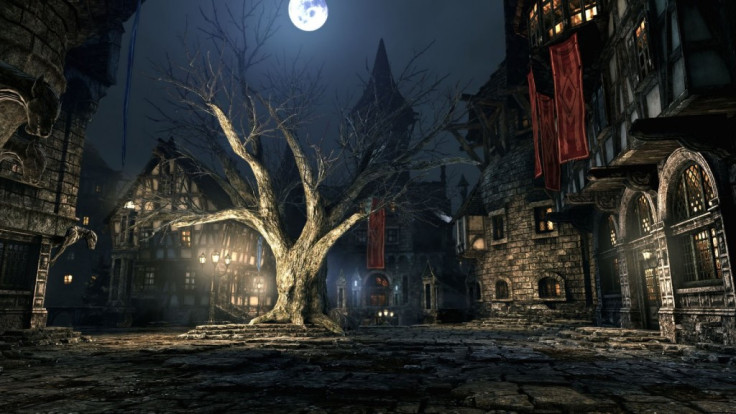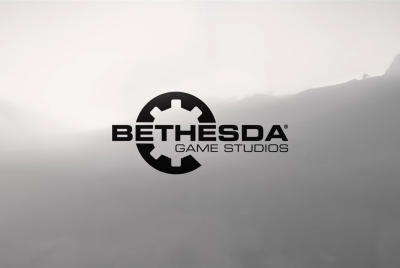Thief: Rebooting Classic 90s Sneak Game

- Developer – Eidos Montreal
- Publisher – Square Enix
- Platforms – Xbox One (tested) PlayStation 4, PlayStation 3, Xbox 360, Microsoft Windows
- Release date – Out now
- Price - £44.99
Thief Review
When playing games, I'm more interested in emotional impact than ludic challenge. I understand the draw of a platform section, a boss fight, a stop-and-start stealth mission, but I'm in it for the sensation. If it means I get to feel more like my character and have more time to appreciate plot and visual design, I don't mind the difficulty being dumbed down. I'd much rather glide through a game with interesting characters and environments than get stuck for hours on the same level of Sonic.
The joy of this game is not spending half an hour finding the best path around enemies, it's flowing effortlessly around them
That's why Thief, this new reboot of the classic nineties sneaking series, appeals to me. Yes, the stealth is simple, yes the guards are dumb, but the game gives you space to appreciate its sights and sounds. Some players might be disappointed that they don't have to die and restart more often, but frankly, I'm bored of playing games that way.
If the guards were zealous or the plaforming was more difficult, there are dozens of moments in Thief that would be spoiled. The joy of this game is not spending half an hour finding the best path around enemies, it's flowing effortlessly around them, skimming between rooftops, picking clean strongboxes without anyone noticing. In short, Thief lets you feel like a thief, able to avoid detection and fill your swag bag without breaking a sweat. But there's also balance. Games that, right from the beginning, provide you with powerful weapons and abilities quickly get boring. It isn't steep, but Thief at least has an incline. It takes hours and a lot of work before you have a full bag of tools at your disposal. You'll never struggle but you won't get complacent either.
So richly characterised – such a dark, damp place
A sense of menace pervades Thief. What it lacks, or rather, refuses to indulge in in terms of steep difficulty, it makes up for with atmosphere and dread. The world of Thief is so richly characterised – such a dark, damp place – that you rarely feel relaxed while playing. It's set in a fictional, faux-Victorian London where a Plague-like disease called "the gloom" is rapidly spreading. Governed by a corrupt oligarch, The City, as it's named, is rife with prostitution, black-market dealers and public executions. Truly, it's one of the most miserable game environments ever rendered. The labyrinthine alleys and walkways add to a sense of murkiness, intrigue, claustrophobia.
When you creak open the window of some backstreet terrace house then stand in the hallway, listening to the settling of the woodwork, you can practically smell the dust, the wet clothes drying on the bannister. The guards may act robotically, but the world of Thief is almost alive. It awakens the senses like very few game worlds I've inhabited before.
You have to hunt for your loot
The stealing mechanics certainly add to that. It isn't a case of simply walking your character over a trinket and it being added instantly to your inventory. You have to hunt for your loot. A lot of Thief is spent rifling through cupboards and drawers looking for pieces of silverware and jewellery. Particularly satisfying is when you find a painting with a safe behind it and, using the left stick, have to run your hands around the edges of the frame looking for a secret release switch. I love games where you interact in ways that aren't related to action or excitement, games where you get to do mundane things like sit down or have a drink.
Thief is one of these. The best parts are when you're alone in a house you've broken into, rummaging through drawers, deciding what to steal and what to leave. Though the game doesn't impress it, if you find yourself in the poor quarter of The City, you find yourself facing a moral question. I personally refused to steal anything from a house where it looked like the owner had no money. If I wasn't allowed to touch or examine items in the way Thief permits, I don't think they'd carry as much weight, as much meaning, and that interesting moral dilemma about whether to take them wouldn't exist.

Magic isn't just used as convenient plot-filler
Like the relatively low difficulty I can understand why the supernatural aspects of Thief's story may bother some people. But again, I enjoyed them. Magic isn't just something the Thief writers use as convenient plot-filler – it isn't like The Force in Star Wars or spells in Harry Potter. The writers really run with it. There are some great, playable hallucination sequences, the kinds I used to expect from games like Max Payne or Silent Hill. If properly contextualising these requires a hint of the paranormal in Thief's story then so be it. The City is characterised as such a dark, mysterious place that a certain level of mysticism is perfectly acceptable.
I'm also defensive of how Garrett, the Thief franchise's lifelong protagonist, has been re-imagined. I don't find his dialogue or new leading-man persona endearing but it doesn't anger me either. If anything, I'm pleased that the makers of this reboot have had the courage to stick to their version of an adaptation. With a franchise as holy as Thief, I assume there must have been enormous pressure to re-make the old games, to create absolutely the lowest form of art: fan service. But Eidos Montreal has done Garrett how it wanted, and whether or not I like him feels almost beside the point. I'm just glad that on this rare occasion videogame fans didn't get their way.
A pretty humdrum approach to the sandbox
If I have one criticism of Thief it's that its structure is unambitious. It's laid out like Dishonored, Arkham City, Asssassin's Creed. It ascribes to a sandbox style that's been re-heated and re-re-heated so many times over the past console generation that it's difficult to get excited about. Side-quests are discovered and completed in precisely the ways you'd expect. Collectibles are dotted around. Environments have multiple paths in and out. None of these elements are bad per se. It's just that they're so familiar now, so used up. With a rebooted franchise on a brand new console it would have been interesting to see sandbox conventions mixed up some, tested. But Thief takes a pretty humdrum approach. It's no worse than the sandbox games before it, it just feels like a wasted opportunity to attempt new things.
Nevertheless, Thief is a visually striking, evocative game. It might frustrate purists but that's because it has higher ambitions than a typical sneak 'em up.
Scores:
Gameplay: 8/10 – Not at all difficult but steady, slow, with a focus on tactile little actions rather than awkward sneaking.
Graphics: 7/10 – Character's lip-syncing is off and even on Xbox One there's some texture pop-in, but The City and the other places you explore are beautifully designed.
Sound: 6/10 – Great voice-acting and some excellent dialogue, let down by an overbearing musical score (it's better to turn it off) and some strange sound-mixing, which often means you can hear conversations happening on the other side of a level.
Writing: 7/10 – There are some brilliant slang-words that the Thief writers have made up and exchanges are, typically, terse and to the point. The supernatural elements aren't entirely convincing but nor are they sacrilege.
Overall: 8/10 – A smart, emotionally led stealth game created by a studio that rightfully refuses to pander.
© Copyright IBTimes 2025. All rights reserved.




















